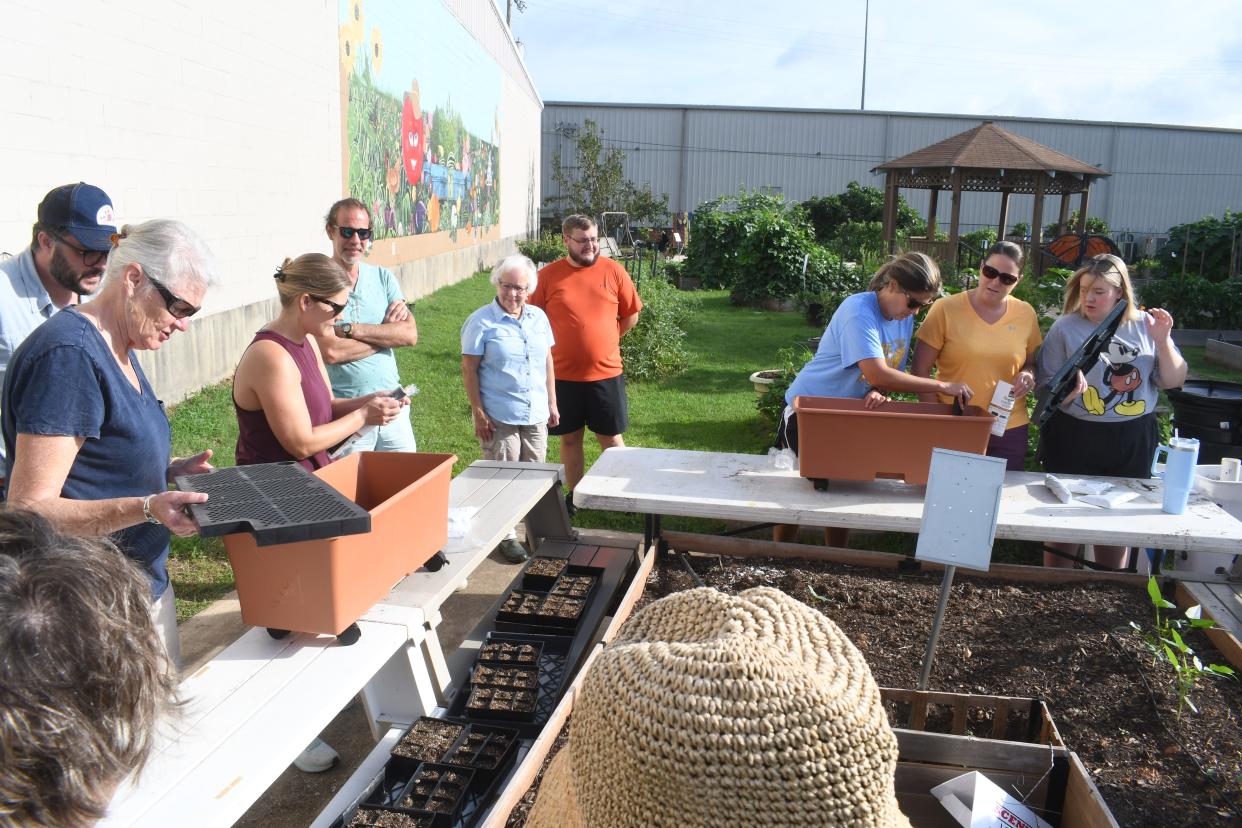Seeds to Success program shows educators how gardens can be a teaching tool

The Good Food Project's demonstration garden at the Food Bank of Central Louisiana served as a living classroom for 19 educators from across Louisiana participating in the Louisiana AgCenter’s Seeds to Success Program.
During the four-day workshop, educators learned how their schools can have sustainable school gardens and how they can integrate it with any of the subjects they teach, said Louisiana Farm to School program director Crystal Besse.
A press release states the training featured “in-depth information and hands-on experiences on farm-to-school best practices, including sustainable gardening, standards-based classroom lessons, and taste-testing.”
“Crystal and I have been talking for about six months now, getting this set up and ready to go so. Getting children excited about growing their own food is of utmost importance for all our futures," said Frances Boudreaux, Good Food Project director.
Whether it’s English, math or science, educators can incorporate a garden into lessons and activities that are more hands-on for the students, said Besse.
For example, to see how the garden could be incorporated into an English lesson, the educators were taken out in the garden where they each chose something to write a story about.
“A certain squash blossom might bring back a memory for you growing up,” she said. “And so they came back, they drew a picture of the squash, and then they wrote a little story about it.”
This activity is also used by educators who teach English as a second language.
Students learn practical knowledge while at the same time how to eat better and try new things, which is the main goal, said Besse. The lessons and activities are linked to Louisiana student standards and are available on their website www.SeedstoSuccess.com.
St. Tammany Parish educator Karin Crosby said she can incorporate the garden to teach students about the processes of photosynthesis and evapotranspiration.
And she’ll be able to do taste tests with the food they’ve grown and used in recipes.
“When we did the composting, I thought the kids would really learn a lot from that,” said Julie Malone, an 8th-grade teacher at Bossier Parish School of Technology and Innovative Learning.
She can teach students that food scraps that would normally be thrown away could be incorporated into compost to make it into a usable substance – soil.
The Seeds to Success program has been around since 2016 when Gov. John Bel Edwards signed into law mandating that there be a Farm to School program, said Besse.
Workshop participants were sent home with garden boxes and a windowsill greenhouse kit so they can start seeds and lots of other materials and resources, she said. Everything they made they got to take home.
Some items were given out as door prizes such as the four strawberry barrels, compost bins and earth boxes.
“It has been a real pleasure to see our demonstration garden used as a living classroom for their teacher participants ad our warehouse classroom utilized as a space for them to gain more information that will be helpful to them as they return to their communities and schools,” said Boudreaux.
For more information about the Seeds to Success program, visit www.SeedstoSuccess.com or email LouisianaFarmtoSchool@agcenter.lsu.edu. For information about the Good Food Project, visit www.goodfoodprojectcenla.org or their Facebook page Good Food Project.
This article originally appeared on Alexandria Town Talk: Seeds to Success program shows educators how gardens can be a teaching tool

